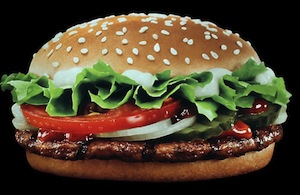 Did you know, your brain is easily the greediest organ in your body and even though it’s only 2% of your body weight, it gobbles up 25% of all the energy from the food you eat!
Did you know, your brain is easily the greediest organ in your body and even though it’s only 2% of your body weight, it gobbles up 25% of all the energy from the food you eat!
So it’s hardly surprising that what you eat affects how well you can think in regulated diploma exams.
Missing the first meal of the day reduces your performance. To give your brain a steady supply of glucose you need to eat breakfast. But you can’t eat any old thing. Research in 2003 showed that children drinking fizzy drinks and eating sugary snacks went on to perform at a similar level to an average 70-year-old in tests of memory and attention!
A far better combination is something like beans on toast, because then, as Barbara Stewart from the University of Ulster discovered, people perform better in a variety of cognitive tests even when the tests get harder.
It seems there is a link between a better memory and high-protein and high-fibre beans.
Marmite also is very good for a better memory. Marmite, a yeast extract, is full of B vitamins and many studies have shown that vitamin B boosts memory. So it seems, you really can eat well for a better memory.
Eggs too, rich in choline, the precursor to the neurotransmitter acetylcholine, gives you everything that you need for your brain to make this very important neurotransmitter, one of many, made by the brain. This one is very important for making connections between brain cells and recalling memories. Research done at Boston University found that healthy young individuals given a drug to block the acetylcholine receptors in the brain significantly reduced their performance in memory tests.
Lower levels of acetylcholine are also associated with Alzheimer’s disease and age-related memory loss.
Salads are full of antioxidants, especially if you include brightly coloured vegetables, which contain beta-carotene and vitamins C and E. Antioxidants help to remove free radicals. Dwight Tapp at the University of California in Irvine discovered that a diet high in antioxidants improved the cognitive skills of beagles! We can only assume it’ll do the same for us.
Yoghurt contains the amino acid tyrosine which we need to make two other neurotransmitters, dopamine and noradrenaline. Research done by the US military show that tyrosine becomes depleted when we are under stress and this can affect our attention and memory.
Strawberries and blueberries have improved the coordination and concentration as well as the short-term memory of rats. Maybe they’ll do the same for us.
Eating little and often is also a good idea and maintains glucose levels. But avoid junk food especially highly-processed stuff like cakes, pastries and biscuits. They contain trans fatty acids, and recent evidence suggests they may be connected with serious mental disorders such as dyslexia, ADHD and autism.
Apparently rats and mice raised on rat junk food were slow finding their way round a maze and took longer to remember solutions to problems they’d solved already.
It is thought that some triglycerides, which are like cholesterol, found in trans fats may be responsible because when the rats were given a drug to bring triglyceride levels down, their performance significantly improved.
Your brain is about 60% fat and research into how you can eat well for a better memory is still coming down in favour of the Omega 3 fatty acids, especially DHA (docosahexaenoic acid). DHA is thought to feed and lubricate the developing brain and stave off dementia.
And it’s found in… guess what… fish!
Try telling our grandparents something they didn’t already know!